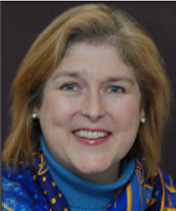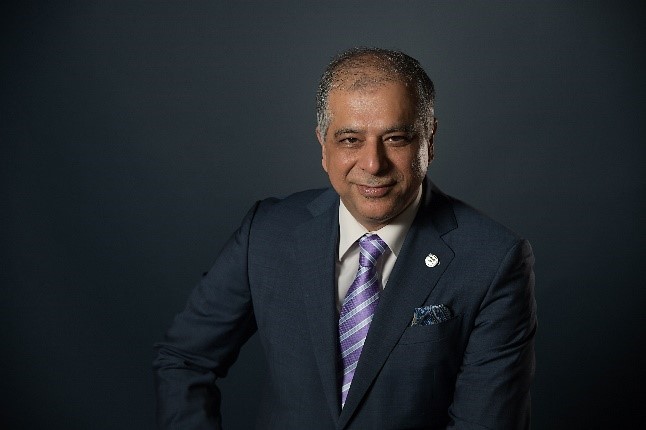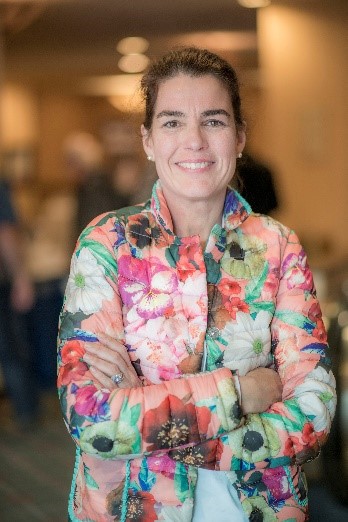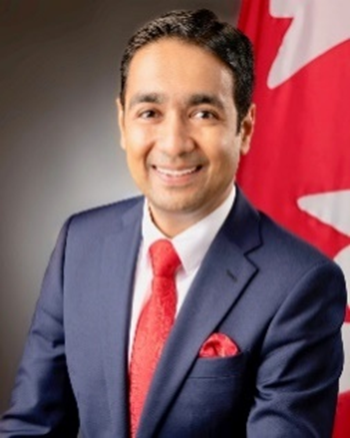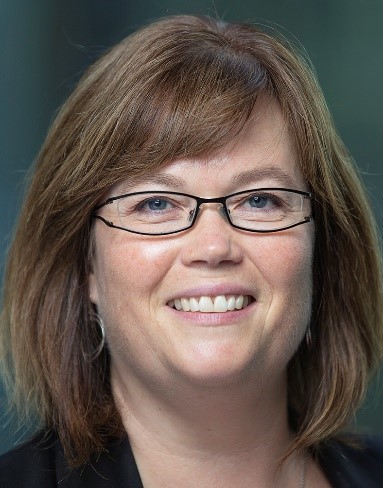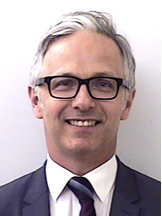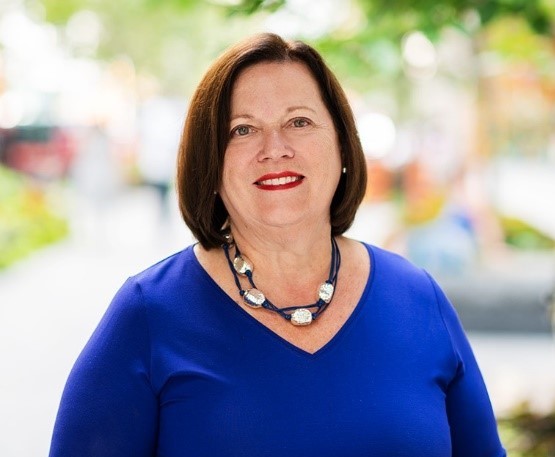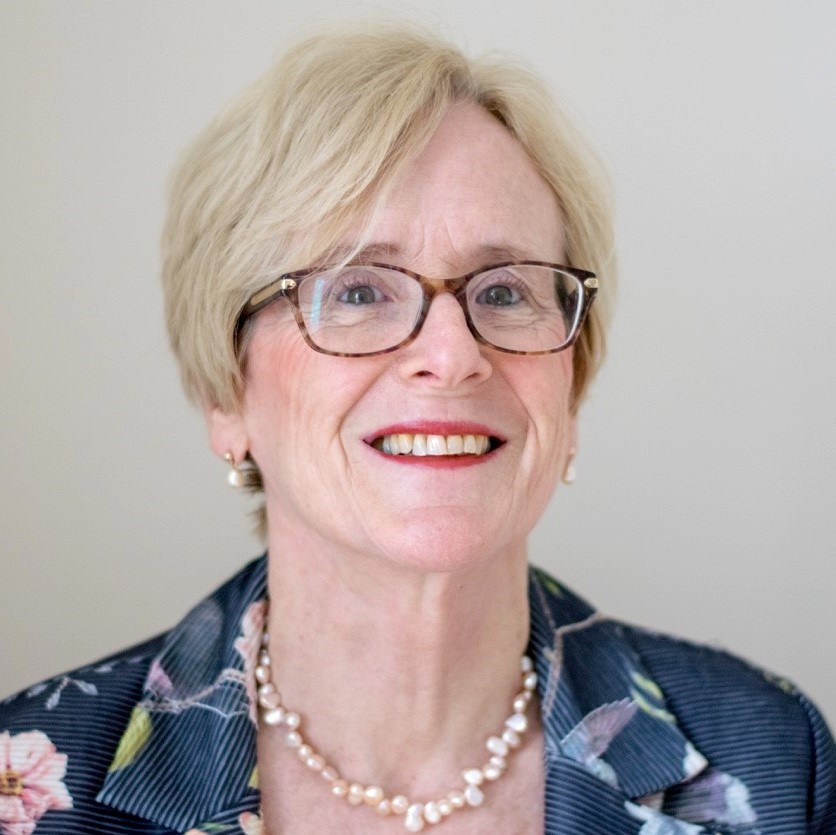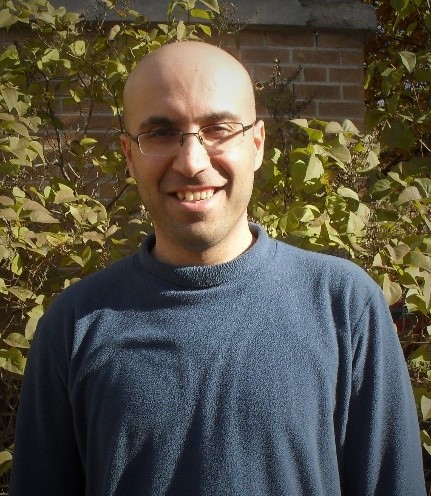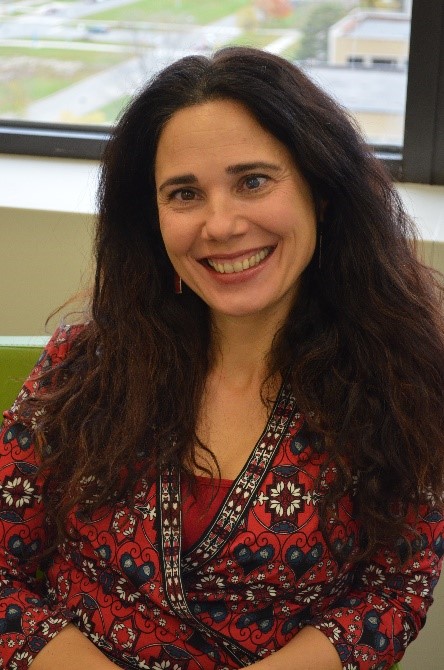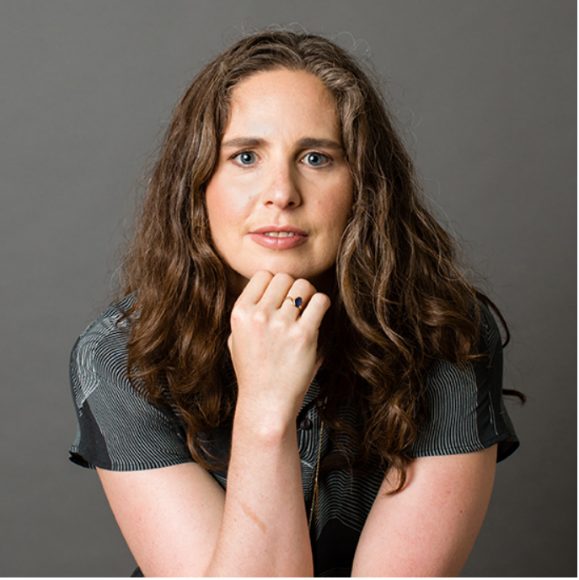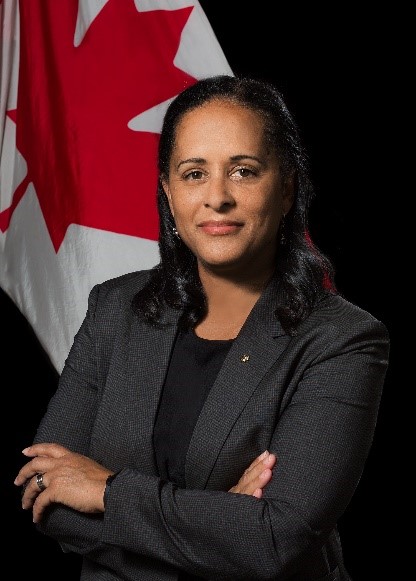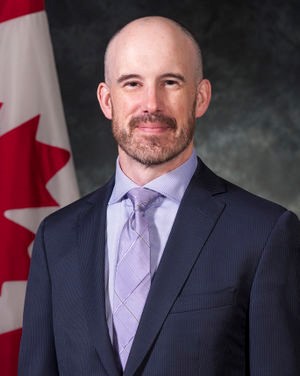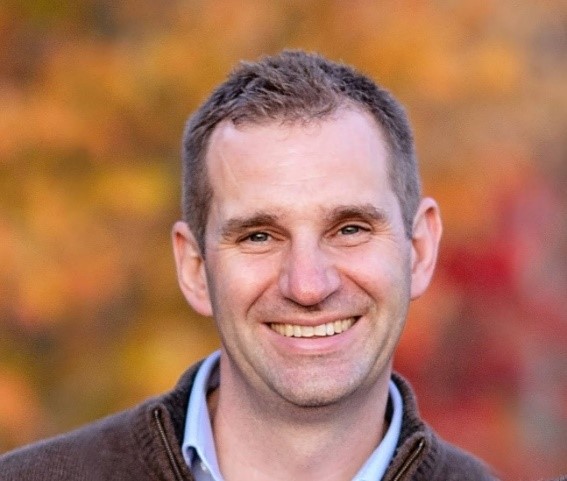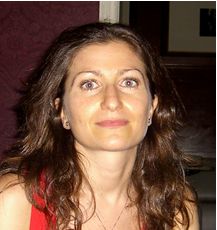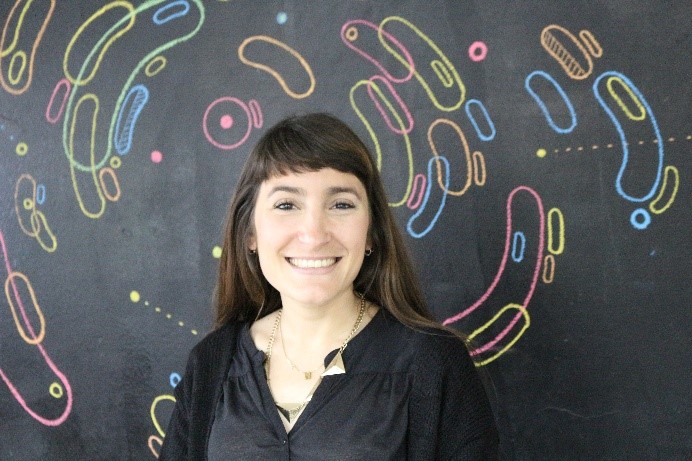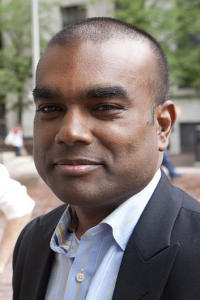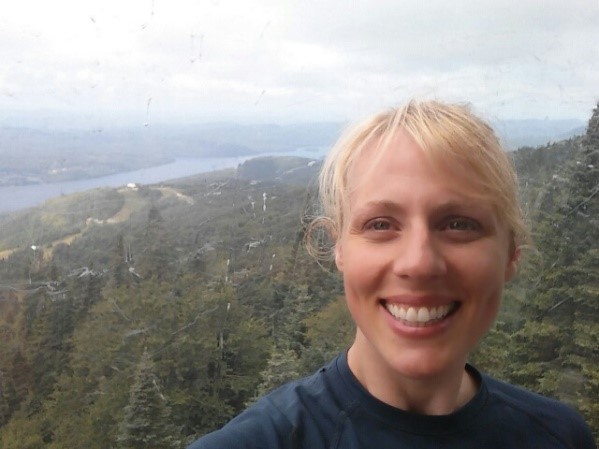2021 Data Conference/Speaker Bio
DAY 1: FEBRUARY 18, 2021
Welcoming Remarks by Masters of Ceremonies
| Name | Biography |
|---|---|
Enrico del Castello |
Director, Knowledge Mobilization and Partnerships, Research and Evaluation Branch, Immigration, Refugees and Citizenship Canada (IRCC)
Most recently in this role, Enrico del Castello spearheaded the planning and execution of the International Metropolis Conference 2019 in Ottawa, drawing in 1400 delegates from over 60 countries around the globe. Prior to this, he planned and organized several international conferences including two G8 Experts roundtables on integration. With over 28 years of experience in the public service, Mr. del Castello has held various senior positions such as Director of International Relations with Canada Customs and Revenue, Director of Research and Outreach at the Public Service Commission of Canada. Mr. del Castello holds a Masters in Political Sciences from Carleton University, and a Post Graduate Degree in Public International Administration from the University of Quebec. |
Liz McKeown |
Faculty member, Canada School of Public Service, Digital Academy
Elizabeth (Liz) McKeown joined the School's faculty at the Digital Academy in 2019. Liz has been involved in the information management and technology fields in various capacities for more than 30 years. She has largely focused on building technical, change, and leadership acumen at all levels, to promote organizational-wide digital modernization. Liz draws from her professional and personal experiences and applies them to her current work at the School, concentrating on developing a digital culture across the public service. |
Indigenous Welcome
| Name | Biography |
|---|---|
Gilbert Whiteduck |
(Anishinabe) Algonquin from the Kitigan Zibi Anishinabeg First Nation community
Gilbert W. Whiteduck was elected Chief of the Kitigan Zibi Anishinabeg community and served from June 2008 to April 2015. He had previously been elected to the Kitigan Zibi Anishinabeg Band Council at different intervals, for a total period of 12 years over the past 4 decades. Mr. Whiteduck was involved in the field of First Nations education for over 33 years. He has held many positions during this period including that of guidance counsellor, teacher, school principal and director of education. Mr. Whiteduck holds a B.S.W (Honours), a B.Ed, an M.Ed and an Honorary Doctorate which he received from the University of Ottawa in 1999 for his work in the field of education. Mr. Whiteduck remains active in his efforts to ensure that First Nation voices are not only heard but understood. He continues to seek balance through ceremony and connection to elders. He walks with an understanding of the historical past that guides him in respecting the present moments with humbleness and love. He believes that there remains much groundwork to be completed for some measure of reconciliation to be achieved but he remains hopeful for the present and future generations of youth that such will be achieved in their lifetime. |
Welcome by Departmental co-hosts
| Name | Biography |
|---|---|
Catrina Tapley |
Deputy Minister of Immigration, Refugees and Citizenship Canada (IRCC)
Ms. Catrina Tapley was appointed Deputy Minister of IRCC on August 19, 2019. Prior to this, she was the Deputy Secretary to the Cabinet (Operations), Privy Council Office. Before joining the Privy Council Office, Ms. Tapley was with IRCC from 2010-2016, serving as Senior Assistant Deputy Minister for Strategic and Program Policy and as Associate Assistant Deputy Minister. In 2011, as a part of the very Beyond the Border Working Group, Ms. Tapley played a senior role in the creation and negotiation of the Beyond the Border Action Plan – a Canada-United States agreement on economic competitiveness and perimeter security. Before joining IRCC, Ms. Tapley held numerous positions at the Treasury Board of Canada, Secretariat. As the Executive Director, Security and Justice Division, she was responsible for management and financial oversight of sixteen different federal departments and agencies in the Public Security and Justice portfolios. |
Taki Sarantakis |
President, Canada School of Public Service
Taki Sarantakis has been President of the Canada School of Public Service since July 2018, having previously served as Associate Secretary of the Treasury Board at the Treasury Board of Canada Secretariat. Mr. Sarantakis spent most of his career at Infrastructure Canada, including as Assistant Deputy Minister of Policy and Communications. In 2011 Mr. Sarantakis was awarded Canada's Public Service Award of Excellence in Public Policy, and in 2013 he was a recipient of the Queen Elizabeth II Diamond Jubilee Medal. Mr. Sarantakis holds a B.A. and an M.A. from York University in Toronto, as well as an Executive Certificate in Public Policy from the Harvard Kennedy School of Government. He is a graduate of the Rotman School of Management's Institute of Corporate Directors Education Program, holding the ICD.D designation. |
Opening Remarks
| Name | Biography |
|---|---|
Anil Arora |
Chief Statistician of Canada
Anil Arora was appointed Chief Statistician of Canada in September 2016, having worked at Statistics Canada for over 25 years, as well as leading senior policy and regulatory roles at Natural Resources Canada and Health Canada. Mr. Arora leads substantive international initiatives, working with the United Nations and the OECD, and has received numerous prestigious awards for leadership. Mr. Arora earned a Bachelor of Science from the University of Alberta and holds a graduate certificate in Advanced Public Sector Management from the University of Ottawa |
PLENARY DISCUSSION – Data for Responsive Public Policy
| Name | Biography |
|---|---|
André Loranger
|
Assistant Chief Statistician for Strategic Data Management, Methods and Analysis, Statistics Canada
André is also Statistics Canada’s Chief Data Officer responsible for the overall stewardship of the organization’s information data holdings. An economist with an M.A. (Economics) degree from the University of Ottawa, André began his career in the public service at Statistics Canada in 1997 where he spent most of his career compiling estimates of GDP. Prior to his current position, he was the Director of Producer Prices Division (2008-2012) and the Director General of the Macroeconomic Statistics Branch (2012-2013). In recent years, André has been involved in international projects related to economic statistics. André is currently a member of the United Nations Global Working Group on Big Data. |
Ima Okonny |
Chief Data Officer, Employment and Social Development Canada (ESDC)
Ima has over 20 years of experience in the field of data. She has extensive experience with building the evidence base through the development of analytical databases, building analytical tools, implementing departmental data reporting and release strategies, data management, data privacy protocols with forward-looking policy development and research. Ima has an educational background in Mathematics, Computer Programming and Public Management and during her time with the Government of Canada, she has received several nominations and awards for her leadership and results. She is passionate about developing and empowering multidisciplinary teams to unleash concrete business value from data. |
Mireille Laroche |
Assistant Commissioner, Service, Innovation and Integration Branch; Chief Data Officer and Chief Service Officer, Canada Revenue Agency (CRA)
Mireille Laroche was appointed to the position of Chief Data Officer for the CRA on September 17, 2018. Mireille joined the CRA in September 2014 as Deputy Assistant Commissioner of the Collections and Verification Branch. She became the Assistant Commissioner of the Appeals Branch on April 1, 2016. Prior to joining the CRA, Mireille was acting Assistant Deputy Minister of the Processing and Payment Services Branch at Service Canada. Mireille began her career in the public service in 1996 with the Department of Finance Canada, where she worked on various economic and fiscal issues. Mireille holds a Master of Arts in Economics from Queen’s University and a Bachelor of Social Sciences with a specialization in Economics and Political Science from the University of Ottawa |
Astrid Guttman |
Professor of Paediatrics, Health Policy and Public Health at the University of Toronto, physician and Senior Scientist at the Hospital for Sick Children, and Senior Scientist and Chief Science Officer at ICES
Astrid Guttmann is Chief Science Officer at ICES, Canada’s largest health services and policy research institute with extensive administrative data holdings. Her research aims to improve inequities in child and family health through population-based studies that inform or evaluate health and mental health system programs and policies. She sits on a number of scientific and policy advisory committees. |
Kara Beckles |
Director General, Data Integration, Privy Council Office
Kara Beckles is Director General of Data Integration at the Privy Council Office, a position she took on during the summer of 2020. Kara previously held several positions across the Government of Canada, most recently at Agriculture and Agri-Food Canada as Director General of the Economic Research and Analysis Directorate and Departmental Data Lead. Kara holds a Bachelor of Arts (Hons.) in economics and business from the University of Winnipeg and a Master of Arts from Dalhousie University.
|
FIRESIDE CHAT – The Value of Data for an Innovative and Inclusive Public Policy
| Name | Biography |
|---|---|
Rohinton Medhora |
President, Centre for International Governance Innovation (CIGI)
Rohinton joined CIGI in 2012. He served on CIGI’s former International Board of Governors from 2009 to 2014. Previously, he was vice president of programs at Canada’s International Development Research Centre. His fields of expertise are monetary and trade policy, international economic relations and development economics. Rohinton received his doctorate in economics in 1988 from the University of Toronto, where he taught for a number of years. In addition to his Ph.D., Rohinton earned his B.A. and M.A. at the University of Toronto. |
Anil Arora |
Chief Statistician of Canada
Anil Arora was appointed Chief Statistician of Canada in September 2016, having worked at Statistics Canada for over 25 years, as well as leading senior policy and regulatory roles at Natural Resources Canada and Health Canada. Mr. Arora leads substantive international initiatives, working with the United Nations and the OECD, and has received numerous prestigious awards for leadership. Mr. Arora earned a Bachelor of Science from the University of Alberta and holds a graduate certificate in Advanced Public Sector Management from the University of Ottawa |
Vic Pant |
Chief Scientist and Chief Science Advisor, Natural Resources Canada In his role, Vik is responsible for accelerating the creative application of innovative digital technologies including AI, to enhance NRCan’s ability to conduct research and analysis, as well as provide evidence-based policy advice that is supported by advanced analytical techniques. Vik works with counterparts from other science-based organizations to ensure that the management of federal policy and research activities align with Government of Canada priorities. |
Natasha Kim |
Associate Assistant Deputy Minister of the Strategic and Program Policy Sector in Immigration Refugees and Citizenship Canada (IRCC).
Previously, she held various positions at IRCC, Privy Council Office, Public Safety Canada, and Justice Canada. Natasha is the IRCC Champion for Multiculturalism, Diversity, and Employment Equity. She is passionate about making IRCC a more inclusive workplace, fostering an open and positive space for the Department’s diverse workforce, and advancing IRCC’s mandate. Natasha holds a Master of Laws from Harvard University, a Bachelor of Laws from Dalhousie University and majored in Women's Studies at the University of Alberta
|
The Implementation of Data Strategies across the Government
| Name | Biography |
|---|---|
Jamie Smith |
Chief Data and Results Officer, Environment and Climate Change Canada (ECCC)
Mr. Jamie Smith began as Environment and Climate Change Canada (ECCC) Chief Data and Results Officer on July 6, 2020 and comes from a strong background in data management and analytics both within and outside the department. Mr. Smith has held various posts within the federal government including at Environment Canada, the Privy Council Office and the Treasury Board Secretariat. Mr. Smith returned to ECCC in 2008 supporting the Ministers office and has since concentrated on water, weather and climate data; earth observations; monitoring network planning; and collaborating with Provinces and Territories to establish agreements to share data before assuming his current position. |
Tom Dufour |
Director General, Strategic Data Management Branch, Statistics Canada
Tom Dufour is the Director General of Statistics Canada’s Strategic Data Management Branch which includes the Office of Privacy Management and Information Coordination, the Statistical Geomatics Center, Data Stewardship Division, and Data Integration Infrastructure Division. He has worked in a number of areas at Statistics Canada for over 29 years including a number of social statistics programs, and most recently, in the Macroeconomic Accounts. |
Daniel MacDonald |
Director General, Strategic Policy, and Chief Data Officer at Natural Resources Canada (NRCan)
Daniel MacDonald is jointly responsible for data strategy development and implementation at NRCan with the Chief Information Officer and the Chief Science Advisor. |
Julie McAuley |
Chief Results and Delivery Officer, Innovation, Science and Economic Development Canada (ISED)
Julie McAuley joined ISED in September 2017 as the department’s Chief Results and Delivery Officer. In this role, she leads the implementation of the department’s outcomes-focused results and delivery framework and is the responsible for the oversight and management of ISED’s Chief Data Office, including the implementation of the Departmental Data Strategy. Prior to joining ISED, she spent her career at Statistics Canada where she held a number of executive positions.
|
Alain Beaudoin |
Assistant Secretary to the Cabinet, Results and Delivery
Privy Council Office. In January 2018, Alain returned to PCO as Assistant Secretary to the Cabinet, Results and Delivery. Previously Alain was at FedDev Ontario where he was Vice-President, Policy, and subsequently Vice-President Business, Innovation and Community Development (2014-18). Alain has had a varied career beginning with a series of increasingly senior roles at PCO (Intergovernmental Affairs), Health Canada, Prime Minister’s Office and Industry Canada. Alain holds a Master’s degree in Arts & Sciences from the Université de Montréal. |
Spotlight on CSAC Report: Towards a Stronger National Statistical System
| Name | Biography |
|---|---|
Gail McDonald |
Former Executive Director of First Nations Information Governance Centre; Member of the Canadian Statistics Advisory Council
Gail Mc Donald brings years of experience in the fields of First Nations health, data governance, survey research, administration and strategic project management. Gail has held senior positions serving her home community of Akwesasne and with organizations including Chiefs of Ontario and the Assembly of First Nations. She was instrumental in developing and managing the First Nations Information Governance Center and played a key role in the development of and advocacy for the First Nations principles of Ownership, Control, Access and Possession of data also known as OCAP®. |
Howard Ramos |
Chair of the Canadian Statistics Advisory Council
Professor and Chair of the Department of Sociology at Western University Dr. Howard Ramos investigates issues of social justice and equity in his research. He has published on ethnicity, race, income polarization, urban issues in secondary regional cities, social movements, human rights, Indigenous mobilization, and environmental advocacy. |
Jan Kestle |
President and Founder, Environics Analytics
Jan Kestle has been a leader in data and analytics in Canada for decades – in industry and in government. An expert in using statistics and mathematics to solve social and economic challenges, she is a member of the Canadian Statistics Advisory Council, the Board of Directors of the Canadian Marketing Association and the Ted Rogers School Dean’s Advisory Council. She has a Bachelor of Science degree in applied mathematics from Western University. |
Céline Le Bourdais |
Distinguished James McGill Professor of Sociology at McGill University
Céline Le Bourdais is Distinguished James McGill Professor of Sociology at McGill University. Often motivated by public policy issues, her research examines the profound changes that families have experienced, using Statistics Canada’s rich survey and administrative datasets. A former Canada Research Chair in Social Statistics and Family Change, Céline Le Bourdais is a fellow of the Royal Society of Canada. She is currently Vice-Chair of the Board of the Canadian Research Data Centre Network (CRDCN) and a member of the Canadian Statistics Advisory Council. |
Data Defense in support GC COVID-19 Response
| Name | Biography |
|---|---|
Jean-Philippe Racicot |
Supervisor, Strategic Assessment Team, Canadian Centre for Cyber Security
Prior to joining the Cyber Centre, Jean-Philippe managed a team of civilian and military strategic analysts within the Canadian Forces’ Intelligence Command and held several analytical and management positions in the Privy Council Office. Before joining the public service, Jean-Philippe lectured at several universities in Québec and was a researcher at the Université du Québec à Montréal’s Raoul-Dandurand Chair in Strategic and Diplomatic Studies. |
Eric Bisaillon |
Director, Security Architecture Branch, Canadian Centre for Cyber Security (CCCS)
In this role, Dr. Bisaillon focuses on the security architecture assessments and advice across a wide range of industries and technology applications. His professional interests include mitigation of threats stemming from virtualization, automation, machine learning, encryption, blockchains, privacy and ubiquitous computing devices. Dr. Eric Bisaillon holds more than 15 years of industry experience in the telecommunications technology field with a focus on agile IT security, Surveillance and Privacy, as well as Canadian Security and Intelligence policy. Dr. Bisaillon has held a variety of Engineering and Management positions at the Communications Security Establishment (CSE) as well as at the Canadian Security and Intelligence Service (CSIS). He holds a Ph.D. in Electrical and Computer Engineering from McGill University in Montreal, Canada. |
Lindsay MacDonald |
Cybersecurity Engagement Lead, Health and Academia Sectors, Communication Security Establishment (CSE)
Lindsay has worked at CSE for 15 years, including many years developing and delivering cyber security training to internal CSE staff. She currently leads the team within the Canadian Center for Cyber Security that manages partnerships and engagements for the Academic and Health sectors. This role includes providing cyber security advice guidance and services to partners in those sectors. She is a graduate of engineering from Queen’s University. |
Don MacLeod |
Director of Autonomous Defence and Sensors
Donald MacLeod has worked at the Communications Security Establishment since 1997 in a variety of cyber security, capabilities development and intelligence roles. Currently he is the Director of Autonomous Defence and Sensors for the CSE’s Cyber Centre. In this role he works with a team to design, build and operate the sensors that help defend the Government of Canada’s worldwide computer networks. This also involves working directly with industry to both better defend the Government of Canada, and also the Critical Infrastructure that Canada depends on
|
Ensuring Data Quality through Data Stewardship
| Name | Biography |
|---|---|
Lauren Aldwinckle |
Senior Analyst, Department of Fisheries and Oceans Canada (DFO)
Throughout her career, Lauren has worked in various roles pertaining to economic analysis, research and program evaluation. Lauren started her data governance journey over eight years ago and is continuing to hone her skills while working as a senior analyst at the DFO, with a strong focus on data stewardship and reference data management. |
Anton Bazilev |
Manager, Data Management, Assistant Deputy Minister, Data, Innovation and Analytics (ADM/DIA), Department of National Defence and Canadian Armed Forces (DND/CAF)
Anton joined DND in October of 2020 as Manager of the Data Management (ADM/DIA) where he is set to help the department advance and support Information/Data Architecture and Data Quality practices – key pillars of the DND/CAF Data Management. He has been working with various Government of Canada departments and the private sector organizations in data leadership roles including Data and Information Architecture, Enterprise Architecture and Data Governance. Before he joined DND, from 2011 to 2020, Anton was a lead Enterprise Information Architect at the Canada Border Services Agency. |
Jane Lin |
Data Governance Analyst, Department of National Defence (DND)
Jane Lin works for ADM (Data, Innovation and Analytics), in the Data Policy and Digital Innovation Division. Prior to joining DND, she produced labour market bulletins at Employment and Social Development Canada and staffing/workforce reports for the Public Service Commission of Canada and Vancouver Coastal Health Authority. She started her career at Statistics Canada in the early 2000s, working on the Labour Force Survey, Monthly Retail Trade Survey, and 2006 Census Labour report |
Crystal Sewards |
Manager, Office of the Chief Data Officer, Statistics Canada
Over 25 years experience working in the Federal Government with a background in data stewardship, data analysis and geomatics. Holds a degree in Human Geography from the University of Ottawa with a specialization in economics and statistics. |
Sébastien Fleurant |
Director, Data Governance and Partnerships at Immigration, Refugees and Citizenship Canada (IRCC)
Sébastien is championing data management and ensuring a strong foundation on which data analysis can flourish. This is enhanced by his mandate in leading the efforts to build data partnerships to increase the value of data sets for IRCC and the Canadian society. Sébastien has been with IRCC for over 13 years. |
Data Ethics and AI Innovation
| Name | Biography |
|---|---|
Benoit Deshaies |
Acting Director of data and artificial intelligence at the Treasury Board of Canada Secretariat (TBS).
Benoit studied computer science at Carleton University in Ottawa. He is acting Director of Data and Artificial Intelligence at the Treasury Board of Canada Secretariat (TBS). He directs the development of the Directive on Automated Decision-Making and the Algorithmic Impact Assessment (AIA). These policy tools ensure that Automated Decision Systems are deployed in a manner that reduces risks to Canadians and federal institutions, and lead to more efficient, accurate, consistent, and interpretable decisions. |
Eric Rancourt |
Director General of the Modern Statistical Methods and Data Science Branch at Statistics Canada
Eric Rancourt has worked at Statistics Canada for 30 years where he has occupied several management roles within the organization and has been involved in multiple research and application projects related to data and related methods. He has been involved in many professional statistical associations and is an elected member of the International Statistical Institute. His current research work focuses on frameworks for optimizing privacy and information and on data ethics. |
Michelle Mann |
General Counsel in Justice Canada, Immigration Refugee and Citizenship Canada (IRCC) Legal Services
Michelle is co-chair of the Justice Canada Artificial Intelligence (AI) Working Group and chair of the Justice Canada E- Commerce Study Group. Michelle is the Justice Canada business lead of a partnership with IRCC to pilot an AI powered legal technology tool for immigration law. She is also a member of the Law Commission of Ontario’s AI Advisory Panel supporting its Digital Rights Project. Michelle started her career in private practice and has previously advised the departments of (then) Human Resources and Skills Development Canada, Health Canada and the Public Health Agency of Canada. Technology law and digital law have been a focus of Michelle’s practice for over twenty years. Michelle has been a member of the Law Society of Upper Canada since 1994 and a member of the Law Society of Manitoba since 1989. |
Patrick McEvenue |
Senior Director in Strategic Policy Branch, Immigration, Refugees and Citizenship Canada (IRCC)
Patrick McEvenue has worked for IRCC since 2006. He is currently serving as the Senior Director in Strategic Policy Branch where he works on the policy implications of the use of AI and other technology in the delivery of Canada’s immigration programs. Patrick holds a bachelor’s degree in history and political science from Concordia University and common and civil law degrees from McGill University’s Faculty of Law. |
Maryam Haghighi |
Director of Data Science at the Bank of Canada
Maryam Haghighi is the Director of Data Science at the Bank of Canada. She provides strategic leadership for data science, artificial intelligence, and machine learning towards the Bank’s mandate. Over the past 15 years, she has successfully led diverse teams from academic environments to global enterprises and private partnerships, to solve complex data problems for multi-billion-dollar projects on the ground and in the skies. She holds a Ph.D. in Mathematics from the University of Ottawa. |
Assessing Input Data and Resultant Model Accuracy
| Name | Biography |
|---|---|
Saeid Molladavoudi |
Lead Data Scientist at Data Science Division in Statistics Canada
Saeid Molladavoudi manages teams of data scientists in Statistics Canada to solve concrete business needs using machine learning solutions. His expertise in identifying opportunities and determining strategic and technical roadmaps helps bring together ideas, individuals and technologies to obtain valuable insights from large-scale data. Under Saeid’s leadership, a team of data scientists are exploring the applications of privacy preserving technologies to address some of the evolving privacy related needs of the organization. |
Stéphane Tremblay |
Team Lead, National Research Council Canada (NRC)
Stéphane is passionate about innovation. He has set his mission as helping organisations become more competitive using their data. Four years ago, that quest brought Stéphane to NRC as the team leader of NRC Data Analytics Centre – a group of experts in data analytics and AI. Stéphane’s training in statistics had brought him to Statistics Canada 20 years ago where he was managing the Canadian Tourism Statistics Program before moving to the Canadian Institute for Health Research to build an evaluation team for research programs. Through his career, Stéphane has gained significant technical and management experience and does his best to preserve a life outside work, which includes being an athlete, a coach, a philosopher, and a father. |
Yvan Gauthier |
Director of Data Science, Assistant Deputy Minister (Data, Innovation, Analytics); Lead, Enterprise Data Science, Defence Research and Development Canada, Department of National Defence (DND)
Yvan Gauthier is a senior defence scientist with Defence Research and Development Canada, Centre for Operational Research and Analysis. As Director of Data Science, he leads a team of data scientists directly supporting DND’s Chief Data Officer. Yvan also chairs the NATO Specialist Team SAS-150 on Advanced Analytics and Artificial Intelligence for Enterprise Resource Planning. In his previous positions, Yvan has led several operational research projects while working in various branches of DND, including the Strategic Joint Staff and the Canadian Joint Operations Command. |
Monica Pikard |
Section Chief, Data Science Division, Statistics Canada
Monica manages multiple projects which include a variety of machine learning algorithms in the area of unstructured text classification, satellite images classification, structured and unstructured PDF extraction and classification. Many of these projects involve large data sets. Prior to joining the Data Science Division in Statistics Canada, Monica worked as an Enterprise Portfolio Manager, acting as a Statistics Canada focal point for the 25 major corporations within her portfolio. Monica has been working at Statistics Canada for the past 14 years and prior to that in Europe in the private Sector as an economist. Monica has M.Sc. in Agriculture Economics from McGill University. |
DAY 2: FEBRUARY 19, 2021
PLENARY DISCUSSION – Data Journalism: Truth Telling with Data Analysis and Visualizations for Public Interest
| Name | Biography |
|---|---|
Tom Cardoso |
Crime and Justice Reporter and Data Journalist at The Globe and Mail
Tom Cardoso has been with The Globe for nearly seven years, and has previously reported extensively on gun violence and white collar crime, the latter of which netted him a 2018 Michener Award nomination. In October, he published a years-in-the-making investigation on racial bias in Canada’s prisons. |
David McKie |
Deputy Managing Editor, National Observer
David McKie is the National Observer’s deputy managing editor. Before joining the Observer, the Ottawa-based, award-winning journalist and author spent 26 years honing his data skills at the CBC as a producer for award-winning investigations into prescription drugs, Tasers, medical devices, nursing-home deficiencies, and school violence. David is also a data-journalism consultant who teaches journalism at Carleton University, the University of King’s College, and Ryerson University. He has co-authored two data-journalism textbooks and an access-to-information user guide. |
Jacopo Ottaviani |
Chief Data Officer, Code for Africa
Jacopo Ottaviani is an award-winning computer scientist and data expert who has shaped Code for Africa’s data team and designed programmes supported by the World Bank, Google News Initiative, GIZ and the Bill and Melinda Gates Foundation, spearheading work in countries like Nigeria, Kenya, South Africa, Uganda and Senegal. Jacopo's most recent work combines satellite data with drone imagery and forensic data to produce strategic data aggregations and visualisations that address social issues in Africa such as urban inequality, immigration, land rights, water security, deforestation and sustainable development goals. Jacopo’s mix of technical skills, as a computer scientist and data journalist, has resulted in a series of projects published by, among others, Thomson Reuters Foundation (UK), Der Spiegel (Germany), El País (Spain), Al Jazeera International (global), De Correspondent (Netherlands) and Internazionale (Italy). |
Lauren Klein |
Associate professor in the Departments of English and Quantitative Theory & Methods, and Director of Digital Humanities Lab at Emory University
Klein works at the intersection of digital humanities, data science, and early American literature, with a research focus on issues of gender and race. Before moving to Emory, she taught in the School of Literature, Media, and Communication at Georgia Tech. In 2017, she was named one of the “rising stars in digital humanities” by Inside Higher Ed. She is the author of An Archive of Taste: Race and Eating in the Early United States (University of Minnesota Press, 2020) and, with Catherine D’Ignazio, Data Feminism (MIT Press, 2020). Her current project, Data by Design: An Interactive History of Data Visualization, 1786-1900, was recently funded by an NEH-Mellon Fellowship for Digital Publication. |
Caroline Xavier |
Associate Deputy Minister Immigration, Refugees, and Citizenship Canada (IRCC) Caroline Xavier was appointed Associate Deputy Minister of IRCC in February 2020. Prior to this appointment, Ms. Xavier held the position of Assistant Secretary to the Cabinet, Security and Intelligence at the Privy Council Office, as of June 2017. Between 2007 and 2017, she has also occupied numerous key positions within the Canada Border Services Agency (CBSA), including Vice-President and Associate Vice-President of the Operations Branch. Before joining the CBSA, she held executive positions with the Communications Security Establishment Canada, Industry Canada and the Canada Revenue Agency. Ms. Xavier has been with the public service for over 30 years. Caroline is a graduate of the University of Ottawa (Bachelor’s Degree in Administration, concentration in marketing and informatics) and of the Dalhousie University, Nova Scotia (Executive Master’s degree in Electronic Commerce).
|
FIRESIDE CHAT – Joys of Joining up: Bridging the Digital, Information Management and Data Worlds
| Name | Biography |
|---|---|
Stephen Burt |
Assistant Deputy Minister (Data, Innovation, Analytics) (ADM-DIA) for the Department of National Defence and Canadian Armed Forces Stephen Burt is also the chair of the federal Chief Data Officer Council. As an organization, ADM (DIA) works to ensure that data are leveraged in all Defence programs to enhance capabilities and decision-making, and to provide an information advantage in military operations. He holds an undergraduate degree in history from the University of Ottawa, and a Master’s in Public Administration from Queen’s University. |
Sandy Kyriakatos |
Chief Data Officer, Canada Border Services Agency (CBSA)
Sandy Kyriakatos joined the Strategic Policy Branch of CBSA in December 2019 as the new Chief Data Officer from Employment and Social Development Canada (ESDC), where in July 2016 she was appointed as the first Chief Data Officer in the Government of Canada. Prior to joining ESDC, Sandy had held a variety of positions in the private and public sector related to data analytics, data governance, business intelligence (BI) and information technology. |
Zaina Sovani |
Assistant Deputy Minister of Transformation, Digital Solutions Sector and Chief Information Officer at Immigration, Refugees and Citizenship Canada (IRCC)
In her current role at IRCC, Zaina Sovani is responsible for leading the department through a major transformational change program focused on improving client experience and service delivery enabled by agile techniques and digital technology. Ms. Sovani joined IRCC in 2017 from the Canada Border Services Agency where she was responsible for the Commercial Trade and Revenue Management Transformation Portfolio as Director General. Over the past 20 years, Ms. Sovani has held many other executive roles both in the public service and private sector, gaining the reputation of a builder and transformational leader. |
Marc Brouillard |
Chief Technology Officer for the Government of Canada
Treasury Board of Canada Secretariat Marc Brouillard is the Chief Technology Officer for the Government of Canada, in the Office of the Chief Information Officer (OCIO) and is currently acting as the interim Chief Information Officer of Canada at the Treasury Board of Canada Secretariat. Marc also served as deputy departmental CIO and acting departmental CIO at Treasury Board Secretariat. Prior to joining the Government of Canada, Marc was VP of Business Development for a local eCommerce Services start-up. Prior to that, he spent 13 years at MONTAGE IT Services, a division of MTS/Allstream, where he held numerous positions in technology consulting and business development. Marc provides government-wide vision and strategic leadership in pursuing world class excellence in digital integration, information management and technology, and cyber security. He has had a long and successful career as a senior public and private sector executive in information management and technology.
|
Standards in Action: Emergence of Data Standards to Drive Business Outcomes
| Name | Biography |
|---|---|
David Barraclough |
Smart Data Practices Manager, Organisation for Economic Co-operation and Development (OECD)
David is chair of the SDMX Statistical Working Group which maintains the “Content-Oriented Guidelines” for SDMX implementation and statistical modelling, and is also a member of the ModernStats standards working group that maintains statistical modernisation models for business and technical architecture. |
Benjamin Williams |
Director of Data Governance and Exchange at Canada Mortgage and Housing Mortgage Corporation (CMHC)
Our goal at CMHC is housing affordability and one of the key objectives for my team is to publicize housing data and insights to promote long-term affordability and sustainability. We have this as an objective because we believe that the more coherent, standardized and available the data, the better the chance that people will make better decisions as they relate to housing affordability. |
Meline Nearing-Hunter |
Director, Information Management Policy and Horizontal Engagement in the Office of the Chief Information Officer, Treasury Board of Canada Secretariat (TBS)
Meline began her career in the public service in 2000 in Employment and Social Development Canada in various roles in employment programs, corporate planning, and information management. Meline joined TBS in 2017, where she is currently leading efforts to advance and evolve information and data management in the Government of Canada in support of a more modern and digital government. |
Daniel Gillman |
Senior research scientist at the Office of Survey Methods Research in the US Bureau of Labor Statistics
Dan Gillman has over 25 years’ experience designing, developing, and implementing standards for data and metadata under DDI, SDMX, UNECE, ANSI, ISO, OMG, and W3C. His work with Data Documentation Initiative (DDI) dates to its inception (1995), Bureau of Labour Statistics (BLS) is a member of the DDI-Alliance, and he has and is guiding the adoption of DDI standards at BLS and the US Department of Labor. |
Cory Chobanik |
Director, Centre for Statistical and Data Standards at Statistics Canada.
Cory has led significant transformational initiatives throughout his career, with experience and partnerships spanning all three levels of government, the private sector and international organizations, including the UN. He has led high-profile projects with a focus on metadata, information management and standards domains. In his current role, he is leading many transformation projects aligned to the FAIR principles (Findability, Accessibility, Interoperability and Reuse of data assets), with open data standards at the foundation, driving business outcomes around interoperability, innovation, harmonization, integration and digitization. |
International Lens: How Open Data is Helping to Solve COVID-19
| Name | Biography |
|---|---|
Barbara Ubaldi |
Head of the Digital Government and Data Unit, Division on Open and Innovative Governments, Public Governance Directorate, OECD
Barbara leads the work on digital technologies and data to enhance openness, efficiency and innovation in governments. She is responsible for country reviews, for monitoring the implementation of the OECD Recommendation on Digital Government Strategies and for the OECD OURdata Index and Digital Government Index. |
Natalia Carfi |
Deputy Director, Open Data Charter (ODC)
Natalia worked as the Open Government Director for the Undersecretary of Public Innovation and Open Government of Argentina where she coordinated the co-creation of the 3rd Open Government National Action Plan. She was also Open Government coordinator for the Digital Division of the Government of Chile and for the City of Buenos Aires. She is part of the Open Data Leaders Network and the Academic Committee of the International Open Data Conference. Nati leads the delivery of the ODC’s strategy, engaging with experts from governments, civil society organizations, academics and the private sector. She also supports the development of plans to deliver projects in collaboration with the ODC network. |
Nigel Jacob |
Nigel Jacob is the Co-founder of the Mayor’s Office of New Urban Mechanics, a civic innovation incubator and R&D Lab within Boston’s City Hall.
Nigel’s work is about making urban life better via innovative, people-oriented applications of technology and design. Prior to joining the City of Boston in 2006, Nigel worked in a series of technology start-ups in the Boston area. He was also previously the Urban Technologist in Residence at Living Cities, a philanthropic collaboration of 22 of the world’s largest foundations and financial institutions. He is currently a board member at organizations such as Code For America and coUrbanize, and is an Executive-in-Residence at Boston University. |
Mélanie Robert |
Executive Director of Open Government at the Treasury Board of Canada Secretariat (TBS)
Mélanie Robert leads the Government of Canada’s efforts to open data and information and to increase accountability and citizen participation. She manages Canada’s Open Government and Open Data Portal (open.canada.ca) as well as the Online Access to Information Request Service. You can follow Mélanie on Twitter @MelRobrt |
Data Partnerships and Infrastructures for Responsive Public Policy – case studies
| Name | Biography |
|---|---|
Donna Curtis Maillet |
Privacy Officer for the New Brunswick Institute for Research, Data and Training (NB-IRDT)
Donna Curtis Maillet has been the Privacy Officer for the NB-IRDT since it originated in 2015 and is Chair of the Health Data Research Network Canada privacy team. In addition to a background in library and information sciences, she holds an interdisciplinary PhD and has research work experience in science and technology studies and legal pluralism. Dr. Curtis Maillet has been a part-time lecturer in sociology and public policy at St Thomas University since 2014. |
Gillian Dawson |
Director, Personal Protective Equipment (PPE) Data, Products and Strategy, Health Canada’s COVID-19 Task Force
Throughout her career at Health Canada, Gillian has architected solutions for complex problems across policy, programs, regulations and operations. Under her direction, the COVID 19 Task Force’s PPE Data, Products and Strategy team has partnered with Statistics Canada to develop a suite of data visualization products providing the latest PPE procurement data and demand forecasting to guide federal and provincial and territorial decision-makers as part of Canada’s response to COVID 19. With her leadership, they have leveraged domain knowledge, policy translation skills and deep interdepartmental partnerships to address some of the most wicked policy questions Health Canada has faced in its response to COVID-19. |
Vedmani Sharan |
Analyst, Chief Data Office, Employment and Social Development Canada
Vedmani Sharan is passionate about data management including data strategy, data architecture and data governance. He is a member of the team that developed the Benefits Knowledge Hub for sharing benefits related data with various stakeholders. Besides working with government, Vedmani is pursuing PhD in Management at the Sprott School of Business, Carleton University. |
Gabrielle Fitzgerald |
Director, Data and Analytics Division, Policy and Results Branch, Infrastructure Canada
Gabrielle has been managing data programs for the Government of Canada for over 12 years. Currently, she is leading the implementation of Infrastructure Canada’s Data Strategy and is responsible for key data programs to help measure the impacts of infrastructure investments, including oversight of Canada’s first ever national survey of public infrastructure. Prior to joining Infrastructure Canada, she oversaw the delivery of Canada's mineral and mining statistics program at Natural Resources Canada; and also led the design and implementation of anti-corruption legislation through the Extractive Sector Transparency Measures Act (ESTMA). |
PLENARY DISCUSSION – Data Literacy Matters
| Name | Biography |
|---|---|
Taki Sarantakis |
President, Canada School of Public Service
Taki Sarantakis has been President of the Canada School of Public Service since July 2018, having previously served as Associate Secretary of the Treasury Board at the Treasury Board of Canada Secretariat. Mr. Sarantakis spent most of his career at Infrastructure Canada, including as Assistant Deputy Minister of Policy and Communications. In 2011 Mr. Sarantakis was awarded Canada's Public Service Award of Excellence in Public Policy, and in 2013 he was a recipient of the Queen Elizabeth II Diamond Jubilee Medal. Mr. Sarantakis holds a B.A. and an M.A. from York University in Toronto, as well as an Executive Certificate in Public Policy from the Harvard Kennedy School of Government. He is a graduate of the Rotman School of Management's Institute of Corporate Directors Education Program, holding the ICD.D designation. |
Jane Crofts |
Founder of Data To The People and creator of Databilities®
Jane Crofts is the founder of Data To The People and creator of Databilities® , the world’s first evidence-based data literacy competency framework. Based in Melbourne, Australia, Jane is an internationally recognised data literacy pioneer and works with leading public and private sector organisations across the globe to measure, map and develop data literacy across these organisations. Jane sits on the Advisory Board for the Data Literacy Project, a global community dedicated to creating a data-literate world. |
Yvan Clermont |
Director General of the Analytical Studies Branch at Statistics Canada.
In his current position, Mr. Clermont is responsible for leading several teams of researchers that provide authoritative expertise and produce high quality, relevant and timely information on economic, health and social issues important to Canadians, governments, non-profit organizations and institutions. |
Ümit Kiziltan |
Chief Data Officer (CDO) Immigration, Refugees and Citizenship Canada (IRCC)
Ümit Mustafa Kiziltan was appointed in 2019 as the Chief Data Officer at IRCC. He has been a Public Service executive since 2006 in resettlement, multiculturalism, and citizenship. In 2011, he became the Director General of Research and Evaluation branch at IRCC, focusing on the development and liberation of research data in close partnership with Statistics Canada. Prior to 2006, Ümit taught in academia, and worked with civil society and First Nations. He is currently preoccupied with the increasing fragility of liberal democracies, which fuels his commitment to quality data and trusted insight to inform public policy and evidence-based narratives. |
Neil Bouwer |
Vice-President of Innovation and Policy Services, Canada School of Public Service
Neil Bouwer has also served as an Assistant Deputy Minister at the Treasury Board of Canada Secretariat, Natural Resources Canada, the Canadian Food Inspection Agency, and the Privy Council Office of Canada; and in executive positions at the Financial Transactions and Reports Analysis Centre of Canada, Human Resources and Social Development Canada and the Business Development Bank of Canada. He has also worked at the Department of Finance and Western Economic Diversification Canada, and has Economics degrees from McGill University and St. Thomas University. Neil actively supports the Government of Canada policy and data communities, the Advanced Policy Analyst Program and the Free Agent HR Program. |



